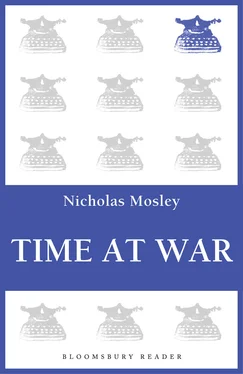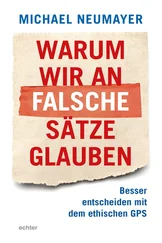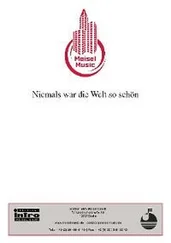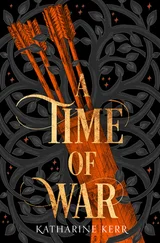(Sixty years later, however, there was a television programme about the crossing of the Rapido river, and one of the pictures was of the only bridge — so the commentator said — which the German artillery had not destroyed; and I was sure I recognised this bridge — a slightly skew-whiff but sturdy Bailey Bridge on props, with planks or tree trunks laid crosswise, and handrails to prevent at least humans sliding off. So had we made it to this bridge after all, or just watched tanks sliding off? Memory itself slips and wobbles.)
We crossed the river one way or another, but by now it was almost dark. So we had to dig in or find a place where others had dug in previously, then try to sleep before the Irish Brigade formed the spearhead of the major breakthrough in the morning. My platoon found an abandoned German defensive position where there might or might not be booby traps; in one of the dugouts was a badly wounded German who had been left and was evidently dying. While my platoon settled in I tried to attend to him and understand what he was saying. He clung to me and spoke imploringly about ‘Der Brief’. I found a letter that appeared to be to his wife or his sweetheart and I promised to get it posted, which I said should be possible through the Red Cross. Then he died.
In the battles for Cassino, and of the Rapido river and the Liri valley that followed, there were numerous demonstrations of the fact that in Italy at least there was no hatred between front-line troops on either side — in fact, almost the opposite. John Horsfall, who became battalion commander of the 2nd London Irish later that day when our colonel was killed, tells in his book Fling Our Banner to the Wind of the camaraderie between German prisoners taken by the Irish Brigade and those escorting them back across the river which was still under fire; of German medical officers and orderlies glad to help with the wounded of both sides at the casualty clearing stations; even of a motor mechanic prisoner being enrolled by the transport officer of the LIR to help repair his battered vehicles. Insofar as there was any animosity felt by frontline troops, it was likely to be directed against politicians and senior officers at the base — who made such daft and ruinous plans and seldom seemed to learn from experience. But even towards them the feeling was more that we were all caught up in this wild maelstrom of human violence and history; there was no way of altering its overall style. All the individual could do was to get on with it, and wonder whether something might be done in future to prevent this savagery. In his book John Horsfall writes of the admiration he felt for the Germans who had held on and resisted at Cassino in spite of the bombings; such a sentiment was commonplace, as was the admiration of the Germans (so it was said later) for the Allied troops who kept on attacking and being mown down almost in the manner of a First World War battle. But these views and emotions did not seem to be experienced by politicians and officers at the base.
The day after our crossing of the Rapido we were on stand-by all day to take the lead in the big push to the north. The starting time for this kept being, as usual, postponed. There were said to be not enough tanks yet across the river; the blocking-off of the monastery by smoke had to be renewed. When we had been crossing the river the smoke had often enveloped us like a low-lying fog; now, in the clearer morning air, the monastery floated like a celestial city above a fitful low-lying cloud. During the day we moved closer to our leading positions, but even with the smoke clearing it was difficult to make out anything of the larger picture. The Liri river was a tributary of the Rapido running into it from the north; the landscape of the valley was a pleasant one of low undulations and clumps of trees. All we knew of the battle was from what we heard, and endured, from what seemed to be the random violence of exploding shells and the wailing of the Nebelwerfers which we had christened Moaning Minnies. We learned that our commanding officer, Colonel Goff, had been killed by a shell from one of these while trying to see what lay ahead; also killed with him was the commanding officer of the tank regiment appointed to work with us. We had to dig new trenches to give us temporary shelter close to our starting point; the start was put back from three o’clock in the afternoon to 7.30 in the evening, and then to first light the next morning. So we stayed in our shallow trenches for another night and listened to the Moaning Minnies and watched the fireflies that seemed to exist in a different dimension from that of the flares and explosions and tracer bullets — flickering like those particles that are said to exist for a millionth of a second and then disappear — while the violence was eternal. Then, at first light, there was the monastery again like the celestial city now ready to receive us.
Throughout the night we had been given extra rum rations: now we were told there would be a hot meal to send us off. When this arrived I was standing up in my shallow trench doling out portions of stew from a canister to men of my platoon who came crawling up with their mess tins; there had been an increase of machine-gun fire at first light, but one had stopped trying to work out where it was coming from or where it was going. When I had doled out the rations there was a bit left over in the bottom of the canister so I thought, reasonably, that the least risky thing for everyone would be for me to take a second helping for myself. I had reached out my hand to do this when I was given what seemed to be a gigantic slap on the wrist — an admonition from a celestial nanny telling me not to stretch? I realised that I had been hit in the wrist by a stray bullet or piece of shrapnel. The wound did not hurt much, but it bled, and the end of my arm hung limp. It seemed that a bone must have been broken. People from my platoon headquarters came to have a look. A field dressing was applied but did not stop the bleeding; it seemed that what was required was proper bandaging and a splint. There was a brief discussion about what I should do; there was still no word or sign of the attack getting under way. I thought that at least I should go to company headquarters and let Mervyn know, and show the medical NCO what had happened. However, if I were a First World War hero, would I not tell no one and just stagger on? When Mervyn saw my wound he asked me to wait for a while because he needed me; but then, when the attack was still not ordered, he agreed that I should go to the medical officer at battalion headquarters and get the wound properly treated. So I left my sergeant, Sergeant Mayo, in charge of my platoon, and wandered off through the smoke and bits of flying metal. Then when I found the medical officer, Rhys Evans, he said there was no question of my carrying on; he gave me injections and dressed the wound and laid me on a stretcher until transport would be available to take me back across the river. The injections made me drowsy; perhaps it was then that I saw the Bailey Bridge that we crossed in my dreams. But I remember thinking — Should I be feeling grateful or guilty for that slap on the wrist as if it were from a celestial nanny? Or later — of course, both.
People who survive in battle while others die sometimes say that they feel guilty; but unless there are particular circumstances this seems senseless: the whole experience is one of it being totally out of one’s control. The myth of the bullet that has one’s name on it often seems appropriate, so why not an image of an unaccountable angel nanny? So long as one remembers that metaphors, however true, are not literal.
So I passed quickly through casualty clearing stations and was ferried all the way back to a hospital near Naples, where I stayed for two weeks and had an operation to set the fractures in my wrist. And it was there that I learned, in a letter from Mervyn, that some time after I had left him the attack had finally gone in, and the battalion had taken its objective, but had sustained many casualties, including Sergeant Mayo and several of my platoon headquarters, who had suffered a direct hit from a mortar and been killed. And this was the reality, whatever metaphor one chose. Mervyn wrote –
Читать дальше












